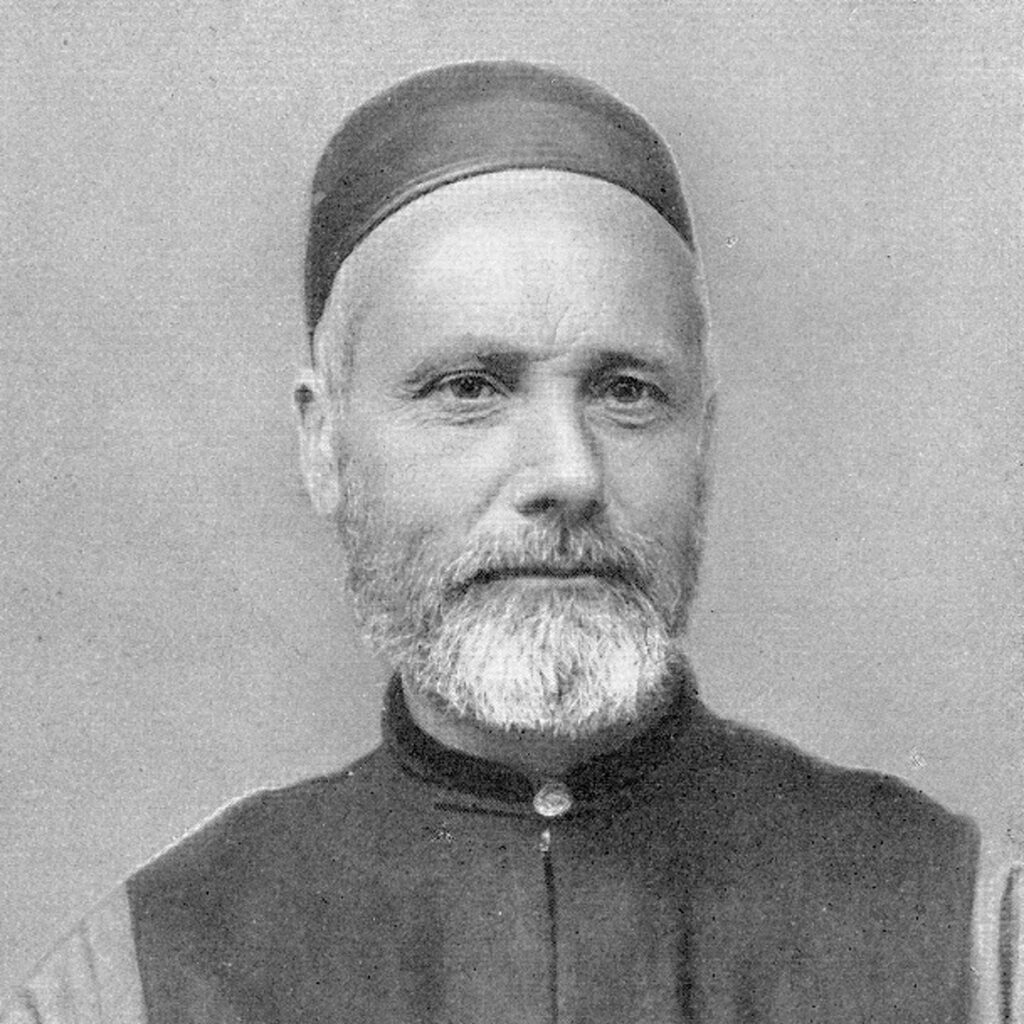James Gilmour, 1843-1891 (Chinese: 景雅各) was a Scottish missionary to China and Mongolia with the London Missionary Society. Wikipedia sums up this unusually devoted servant of the Lord Jesus this way. “Upon reaching a new city, he pitched his tent on a main thoroughfare and from early morning till late at night healed the sick, preached and talked to inquirers. During one eight months’ campaign he saw about 6,000 patients, preached to nearly 24,000 people, sold 3,000 books, distributed 4,500 tracts, travelled 1,860 miles and spent about $200.”
Reading his story impacted me deeply. For a fuller version, look him up on Wikipedia. Warning: Don’t imitate his method of finding a missionary life partner (see below) unless the Lord clearly leads you!
1. His call to mission. “To me the soul of an Indian seemed as precious as the soul of an Englishman, and the Gospel as much for the Chinese as the European.’ The command in Matthew told him to ‘go into all the world and preach’, so the command to preach was coupled with a command to go into all the world. He didn’t believe that what God had joined (to preach and to go) could be separated. He believed that God hadn’t called him to stay at home, so if he were to be obedient he must go.” How very different would attitudes to cross-cultural mission be today if we all recognised that we need a call to stay at home just as much as a call to missionary service.
2. Family background. “His mother delighted in gathering her sons about her in the evening and reading to them missionary and religious stories and making comments upon them. Family worship was so strictly adhered to that neighbours would have to wait until the hour was passed before they could be served.” That early influence on Gilmour was powerfully fruitful.
3. Discipline. He spoke of the “unspeakable value” he placed on time. He never wilfully lost an hour. He was very economical. He seized every opportunity. In 1870 he sailed to China on the steamship Diomed. “At night he talked to every member of the crew while on watch, and laid the matter of salvation so clearly before them that he afterwards wrote, ‘All on board had repeated opportunities of hearing the Gospel as plainly as I could put it.’”
4. His marriage. Gilmour saw a picture of Miss Emily Prankard, the younger sister of a friend’s wife while visiting his friend’s house in China. Gilmour was increasingly lonely and had prayed about finding a wife. Gilmour, though he had not met the lady, wrote her a letter from China to the UK, proposing marriage. “I proposed in January, went up to Mongolia in the spring, rode about on my camels till July, and came down to Kalgan to find that I was an accepted man!” She landed on a Thursday, and the following Tuesday, 8 December 1874, they were married. He afterwards wrote, “She is a jolly girl, as much, perhaps more, of a Christian and a Christian missionary than I am.”
I should add a warning that I do not recommend that method of finding a husband or wife unless the Lord very clearly leads! But it worked well for Gilmour. He wrote: “I am much more happy than even in my day-dreams I ventured to imagine I might be.”
5. Danger and hardships. Regarding the dangers of the Boxer rebellion he wrote that “we are all living on the slope of a volcano that may put forth its slumbering rage at any moment.” He worked among wandering tribes who almost knew no government or feared no power. Terrible dust storms swept over the land.
6. Language and culture. Early in his Mongolian time, he lived with a local man who was attended by two lamas that lived in adjoining huts. “Here Gilmour spent three months, acquired the language rapidly and gained real insight into the hearts and minds of the natives. He was willing to be all things lawful in order to ‘win some trophies of the cross’. He became a vegetarian to win some of higher moral standards; he dressed like a shopkeeper; ate porridge, native fashion, in the street in order to win souls for Christ. His living expenses averaged about six cents per day.”
7. His faithfulness, although he saw little fruit. “At the end of 1874, after four years of labour, he could not report one convert, not even one who could be classed as interested in Christianity. The people did not have even a sense of need of what the Gospel was.” When in 1884 he saw his first convert, he said that “the place was as beautiful to me as the gate of heaven, and the words of the man’s confession of Christ were as inspiring to me as if they had been spoken by an angel from out the cloud of glory.”
James Gilmour died in Tianjin on 21 May 1891.



